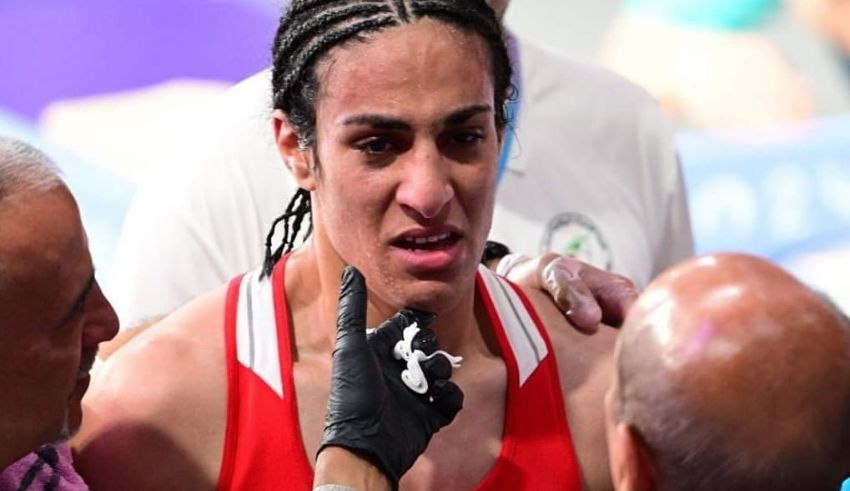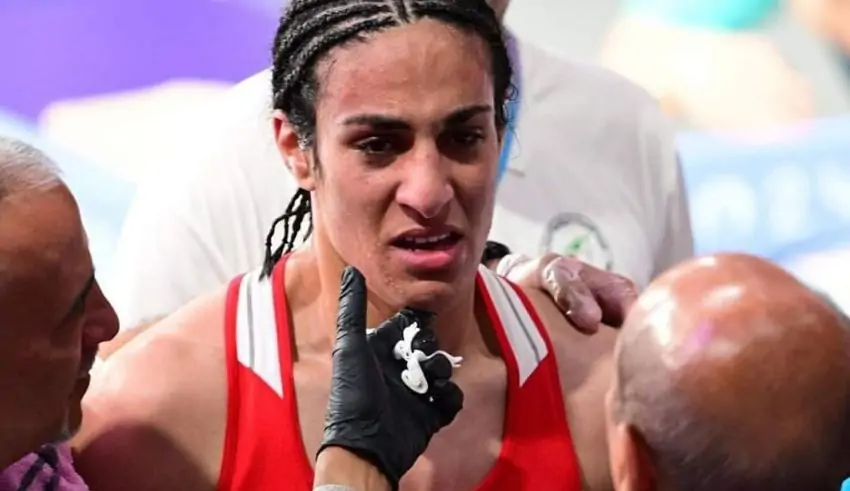

(C) Imane Khelif IG
Particularly in view of recent scandals at the Paris Olympics, the continuous debates on sex eligibility policies in women’s sports have attracted notable attention. Previously under close examination for its fierce physicality and competitive character, women’s boxing has since taken front stage in the larger discussion on how best to fairly and successfully apply these rules. Athletes such as Lin Yu-ting from Taiwan and Imane Khelif from Algeria have exposed the complexity and difficulties female athletes have when their eligibility is called into doubt.
Eligibility Criteria: Their Complexity
Particularly in women’s events where physical disparities between male and female competitors are taken into account as major factors, sex eligibility laws in sports are meant to guarantee a level playing field. Still, the process of writing and implementing these guidelines is difficult. Sports organizations have to negotiate a web of legal, ethical, and scientific factors to decide who is qualified to enter women’s divisions. The debate usually results from the fact that these choices interact with sensitive issues like gender identity and human rights in addition to depending on biological considerations.
The instances of Imane Khelif and Lin Yu-ting show the personal and professional cost that sex eligibility policies impose on sportsmen. Concerns regarding their eligibility to fight in women’s boxing at the Paris Olympics drove both competitors into the center of attention. For the athletes engaged, the frequently public and intrusive attention can cause extreme mental and psychological stress. Like many others before them, Khelif and Lin were left open to public opinion and media conjecture, which only served to heighten the demands of competing at the highest level of their sport.
Ethical and Legal Obstacles
When female athletes’ eligibility is called into doubt, it usually becomes a legally difficult matter for sports leagues. These committees have to strike a balance between the athletes’ rights and dignity and the demand for honest competition. Sometimes the long and invasive legal procedures involved result in circumstances when athletes are exposed to humiliating and degrading tests or operations. The absence of well defined, globally accepted standards complicates matters even more and leaves sportsmen in a vulnerable state whereby decisions sometimes out of their control could compromise their careers.
Abuse and Humiliation Risk
The possibility for athletes to be subjected to public humiliation and abuse under the implementation of sex eligibility criteria is among the most disturbing features of it. For the athletes, who are sometimes presented as subjects of debate rather than rivals in their own right, the media coverage accompanying these events could cause a loss of privacy and dignity. Being singled out in this manner can cause long-lasting consequences on an athlete’s mental health and career since they might be wrongly stigmatized or shunned by peers as well as the public.
The challenging challenge assigned to sports organizations is developing and implementing fair and open sex eligibility policies. Still, the way these guidelines are carried out usually leaves much to be desired. Critics of the International Olympic Committee (IOC) and other regulatory bodies have pointed out their handling of these problems; some have claimed they neglect to defend the athletes’ rights and welfare. Whether these groups should be more adaptable in their approach, given the unique situation of every athlete instead of enforcing a one-size-fits-all guideline, is a topic of continuous contention.
Looking Ahead: Reform’s Necessity
Growing agreement among those debating sex eligibility criteria is that adjustments are required to shield athletes from the unfavorable effects of present rules. Advocates are advocating for more compassionate, scientifically informed methods that honor the rights and dignity of every rival. Better standards for determining eligibility, more help for sportsmen impacted by these policies, and more openness in the sports bodies’ decision-making procedures could all fall under this category.
Last Thought
The Paris Olympics have once more brought to light the intricate and multifarious problems related to female sex eligibility in sports. The cases of Imane Khelif and Lin Yu-ting remind us of the pressing need of more deliberate and fair solutions for these problems. Sports are always changing, hence it is imperative that the laws controlling competition reflect the humanity of every athlete engaged and be fair as well. Ensuring that women’s sports’ future is both competitive and compassionate depends on the continuous conversation on this matter.
As President Donald Trump declared economic independence through new tariffs he placed significant harm on developing countries in Southeast Asia…
Once again crowned the world's best entrepreneurship nation in the Global Entrepreneurship Monitor (GEM) Report, the UAE has claimed the…
At age 24 Mykhailo Polyakov from America violated regulations when he came to North Sentinel Island which authorities guard to…
The much awaited action thriller Runner is getting boosted with a stellar cast. Directed by Scott Waugh, the film has…
Emirates has launched a new product, Emirates Courier Express, which promises faster, more reliable, flexible express shipping to customers around…
Nintendo has announced the new Switch 2 to stir the gaming world with some fabulous features. This console of the…
This website uses cookies.
Read More